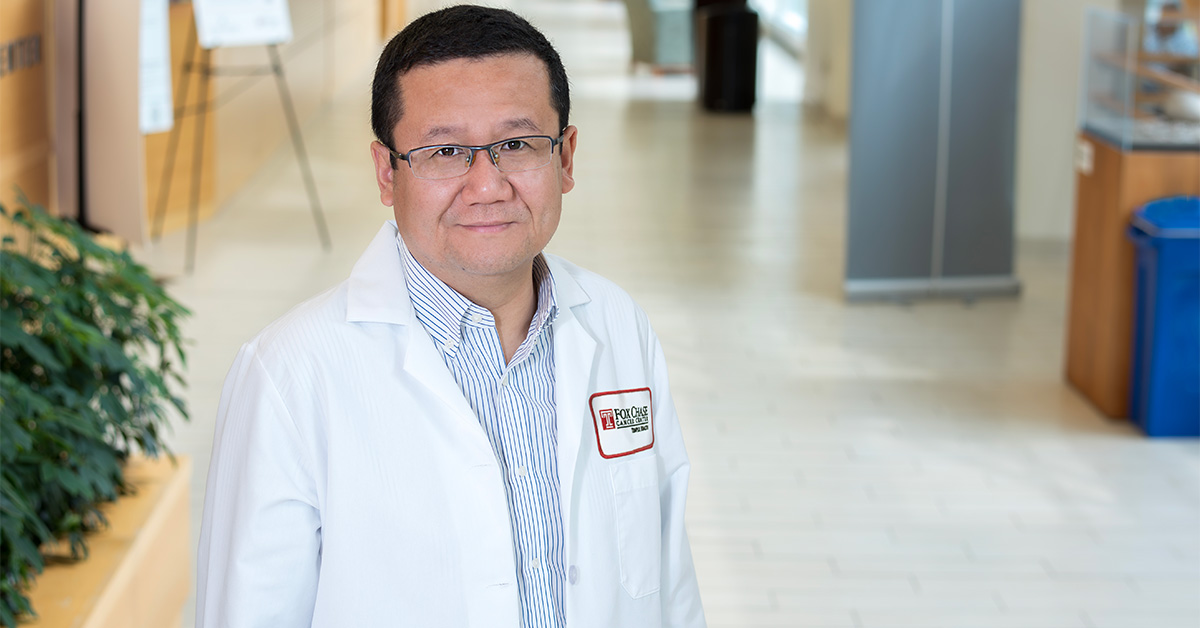
PHILADELPHIA (July 18, 2024) — Yu “Sunny” Liu, PhD, an Assistant Professor in the Nuclear Dynamics and Cancer Research Program at Fox Chase Cancer Center, has received a grant from the National Institute of General Medical Sciences (NIGMS) of the National Institutes of Health to study how misfolded human genome can cause disease.
“Receiving this grant is a great honor. It reflects the immense support that my colleagues and I have received from Fox Chase leadership and the Fox Chase community as a whole,” said Liu, who is also a member of the Cancer Epigenetics Institute at Fox Chase.
Liu received the Maximizing Investigators’ Research Award (R35), which is granted to researchers who work toward the goals of the NIGMS and whose previous research has demonstrated talent and promise.
R35 grants provide long-term support and allow investigators to continue, or to embark on, long-term projects of unusual potential. The grants generally run for five years.
Liu joined Fox Chase in August of 2023 and has already been involved with several initiatives. “In the short time that he has been with us, Sunny has already done a remarkable job, and with this grant, we expect more to come,” said Johnathan R. Whetstine, PhD, Director of the Cancer Epigenetics Institute.
Liu’s research focuses on the folding and regulation of the genome in three-dimensional (3D) spaces. His team’s long-term objective is to combine epigenetics, 3D genomics, and artificial intelligence algorithms to enhance cancer diagnostics and develop more effective therapies for the benefit of patients.
“The research funded by the R35 grant aims to uncover how the structures of the human genome are formed and regulated, and how genome misfolding is implicated in cancer. We seek to apply our findings to providing more cancer patients with better diagnosis and management experiences,” Liu said.
“This team is driven by one goal: to conquer cancer,” he added. “We know the journey will not be smooth, but with continued support and collaboration, we believe our research will lead to groundbreaking advancements in cancer diagnosis and treatment.”
The NIGMS is one of the 27 separate institutes and centers comprising the National Institutes of Health. Its work supports biological research that lays the groundwork for advancement in the diagnosis, treatment, and prevention of disease.